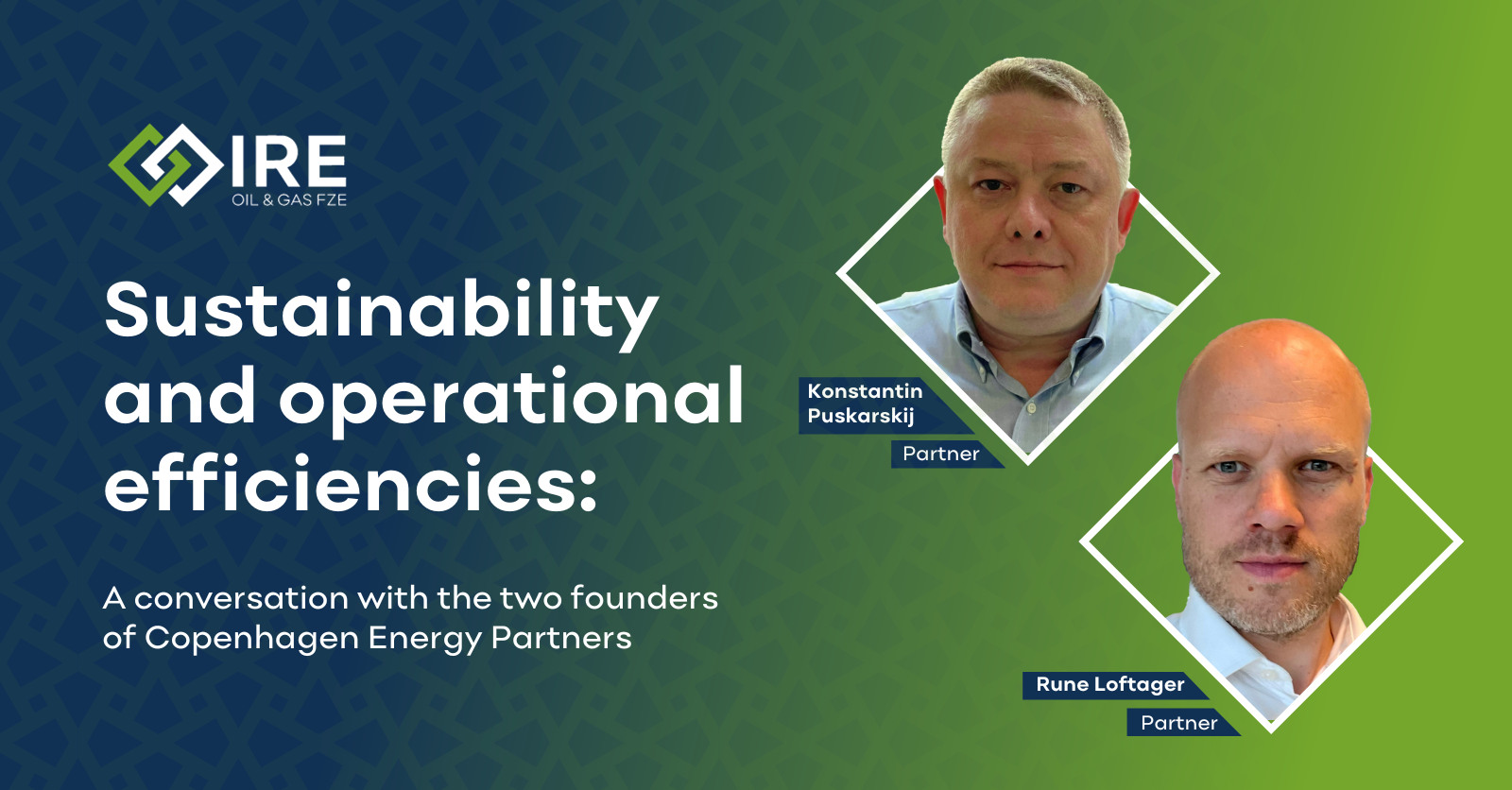Iron Roughneck Maintenance: 3 reasons to save your ST80 jaws and exchange used for refurbished
In the fast-paced world of oilfield operations, equipment durability and cost-effectiveness are...
By: IRE Oil & Gas FZE Jan 19, 2024 3:06:11 PM

As the need for sustainable solutions in the energy sector rapidly rises, it’s important to explore new pathways and spark new discussions that will drive positive change across the globe.
We sat down with the founders of Copenhagen Energy Partners Konstantin Puskarskij and Rune Loftager, for a conversation around the link between sustainability and operational efficiencies, a topic we’re very passionate about here at IRE, and an area we believe has monumental potential for drilling companies across the Middle East.
They offer interesting insights into how embracing sustainable technologies is not just environmentally imperative but also economically beneficial for energy companies, and shares helpful tips and guidance for companies looking to focus on this in 2024 and beyond.
“Adopting more sustainable technology makes a lot of business sense for those in the energy sector. Of course the overarching reason why is environmental protection, as energy companies are significant contributors to our society’s overall emissions, however there are major economical benefits at play here, making participation in sustainable practices a win-win scenario.”
“Absolutely! The drive for operational efficiencies has always been present in the oil and gas industry, but traditionally it hasn’t been linked to sustainability and carbon emissions. The impact of reducing the time per well can be enormous, as well as the impact from an emissions perspective. This should always be quantified to provide insight that could unlock mutually beneficial ideas and solutions, and foster new initiatives across the sector globally.”
“Changes are hard. We are still seeing disbelief and resistance to change within some organisations in the industry, which can hinder the exploration and adoption of greener technology.
“Also some companies believe that such changes must involve huge risks and shifts in their strategies, for example moving into carbon capture storage (CCS), which obviously takes significant time, effort and investment. This isn’t the only way - there are much simpler, more immediate solutions available that can unlock significant emissions reductions, operational efficiencies and cost savings if the right data is made available in the right context.
“Sometimes the challenge with these more incremental energy efficiency solutions are that they aren’t as visible as the prominent large-scale projects - they’re not being discussed as regularly across the industry, and we believe so much opportunity is being overlooked.”
“From a drilling perspective, there is an abundance of opportunities waiting to be uncovered on most rigs. Many were designed over 15 years ago, when there was less focus on energy efficiency and much more on safety and operations.
“The biggest opportunities for equipment upgrades are found on continually-running equipment often placed below the main deck, such as pumps, motors, HVAC and HPUs. You’re almost guaranteed to find cases that will deliver great ROI from both a sustainability and operational perspective
“The potential of behavioural changes must also be mentioned here, although we all know how hard it is to change the culture in an organisation. If teams think smaller and smarter, the cumulative outcome can be incredible - and drilling programmes could be completed much more efficiently. This is less about large initiatives, and more about honing in on day-to-day operations to gain incremental improvements and converting energy efficiency into an everyday matter.”
“Start measuring, set baselines, and understand where you are now - what gets measured gets done! You’ll then be able to accurately track your progress, both from an emissions perspective but also efficiencies and financial perspective too. This will be the catalyst for change in your organisation - being able to actually see the improvements and benefits and report them to your stakeholders.
“Be curious and build knowledge of what technology and solutions are available. Be willing to experiment but be disciplined when assessing the potential abatement cost, ensuring you understand the true impact for the dollar invested. This will help you understand what is actually interesting and offers great potential, or what is just “cool tech”.
“With that insight, you can confidently set your strategy and investment criteria. What do you want to pay for a tonne of CO2 to be removed from your operations? Develop a shortlist for 2024, and start planning - it doesn’t have to be more complicated than that.”
Copenhagen Energy Partners is a provider of end-to-end greenhouse gas emissions mapping, assessing, quantifying and reporting services, that provides companies with decarbonisation strategies and can recommend a suite of solutions for carbon footprint reduction.
At IRE, we are continually curating a portfolio of equipment solutions from innovative manufacturers across the globe that enhance sustainability and operational efficiencies simultaneously, and can work with your business to identify the most suitable opportunities.
Learn more: https://irefze.com/sustainability/
In the fast-paced world of oilfield operations, equipment durability and cost-effectiveness are...
Achieving worldwide use, the RIGTOOLS Clamp is the most popular product developed by RIGTOOLS,...
The team at IRE has always felt very fortunate to work with an array of exceptional partners within...